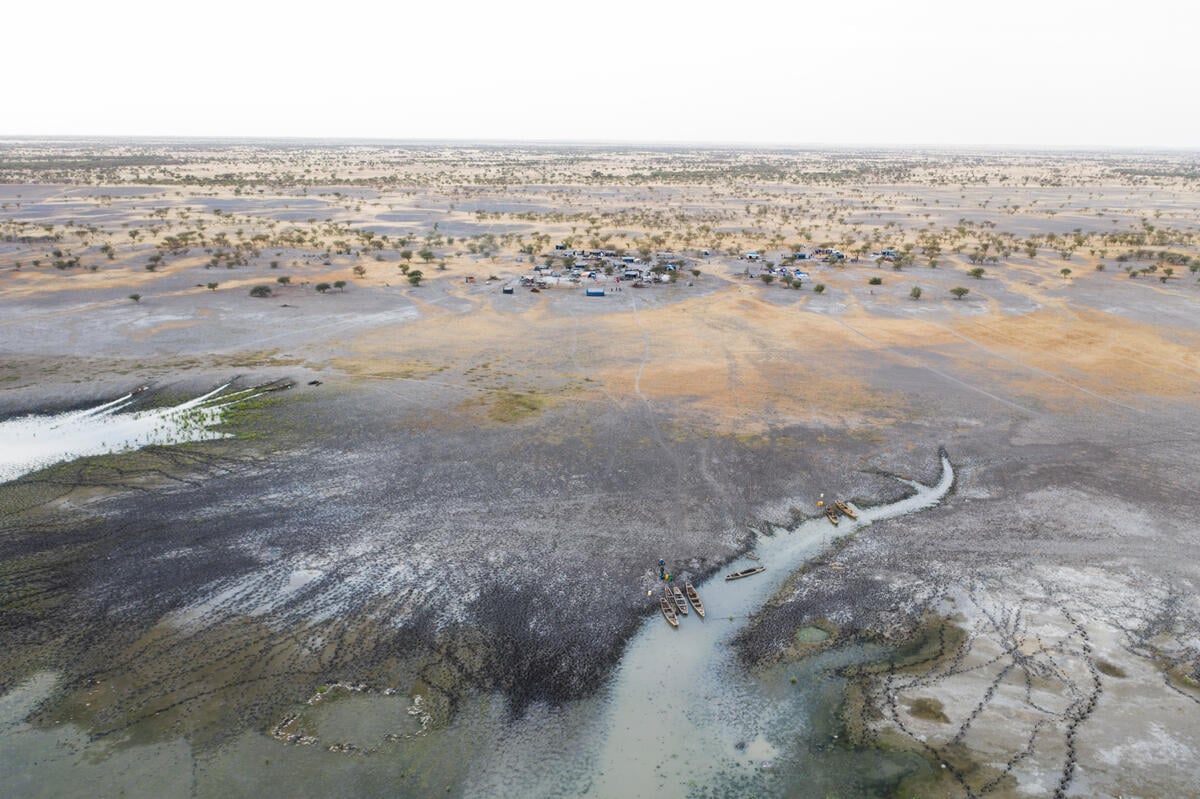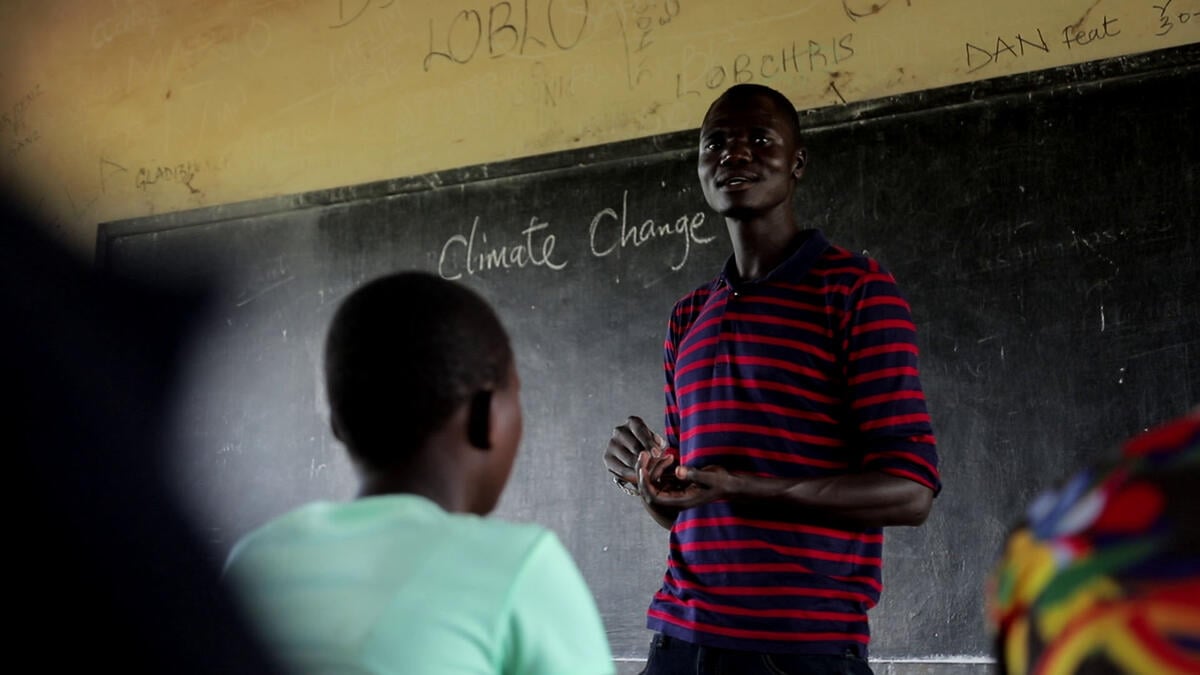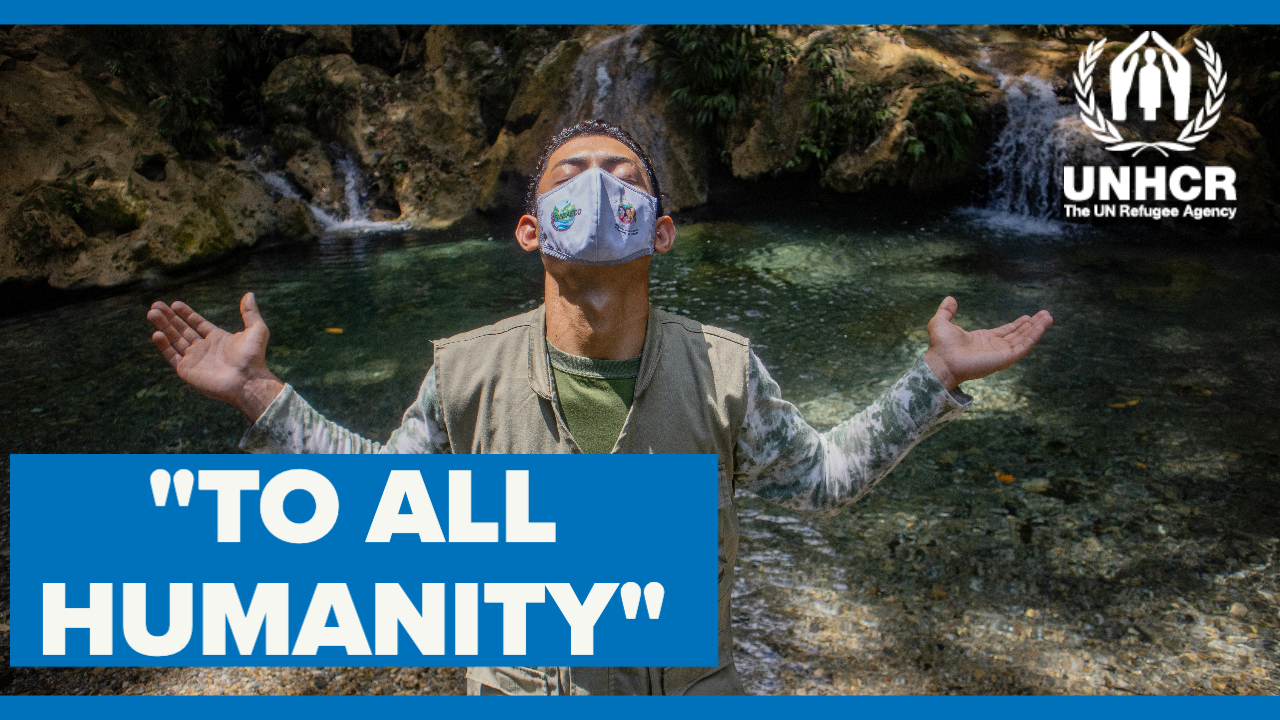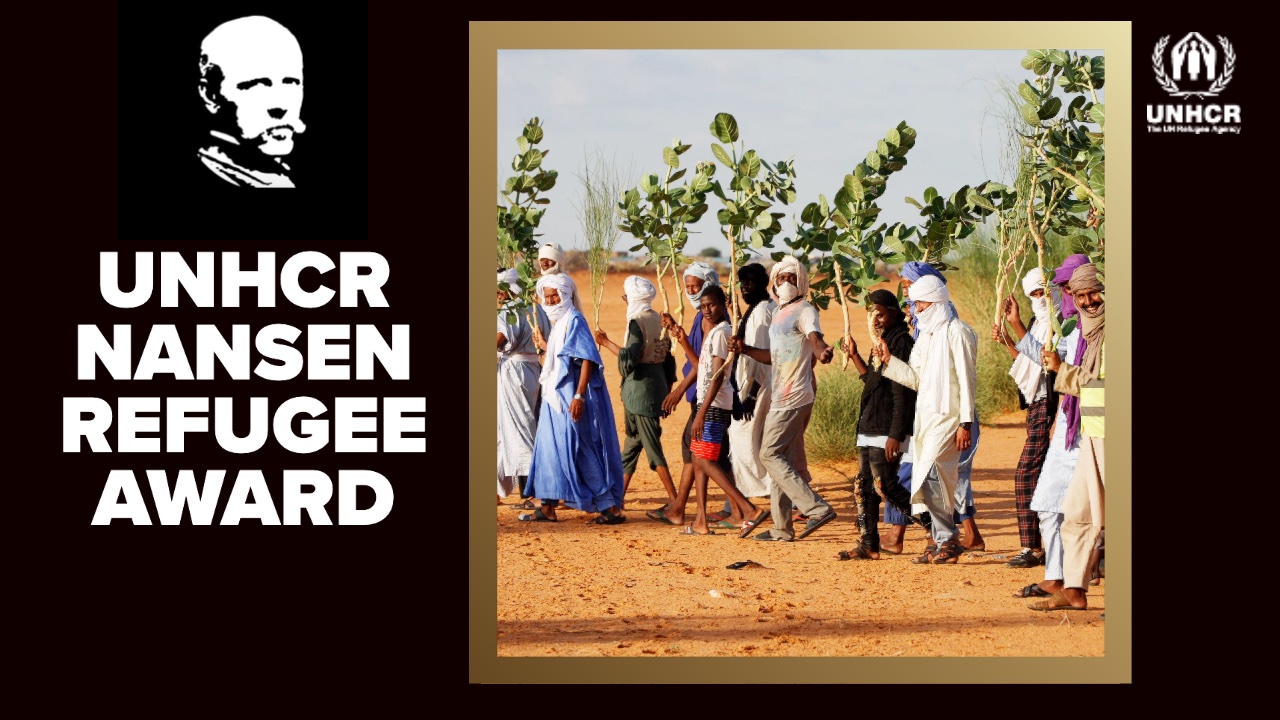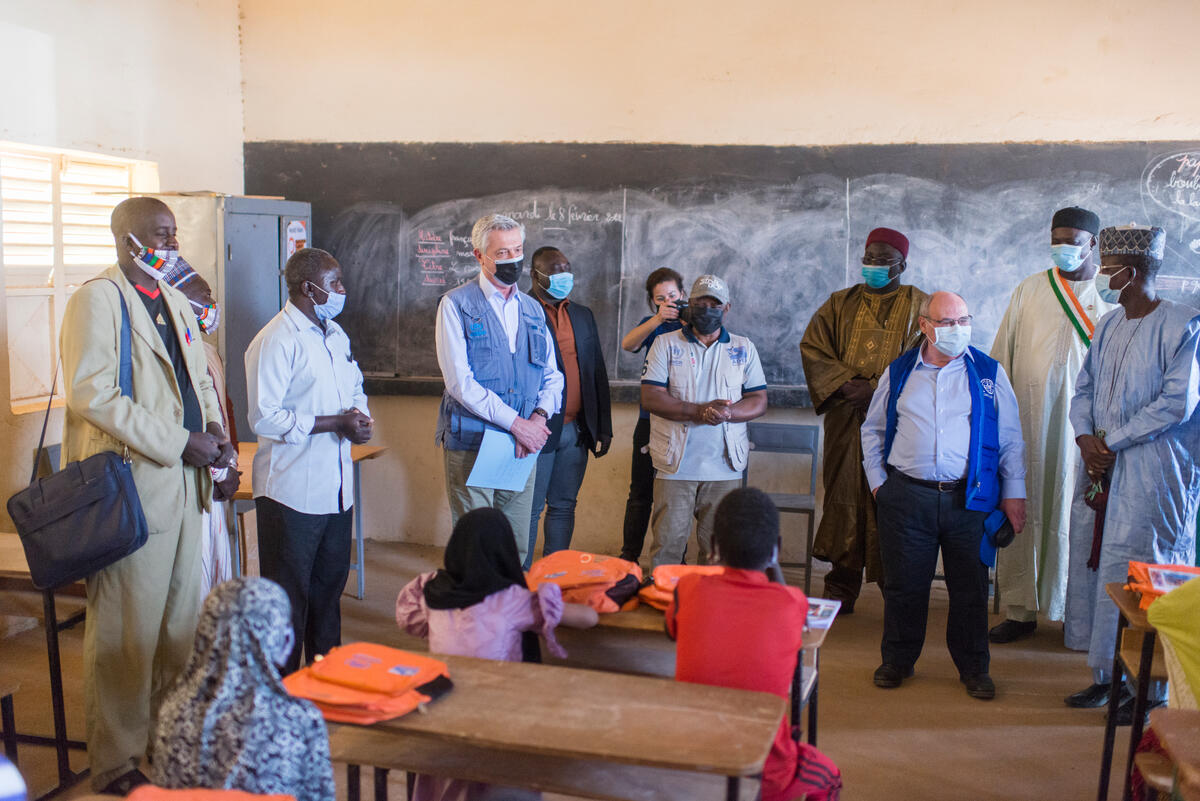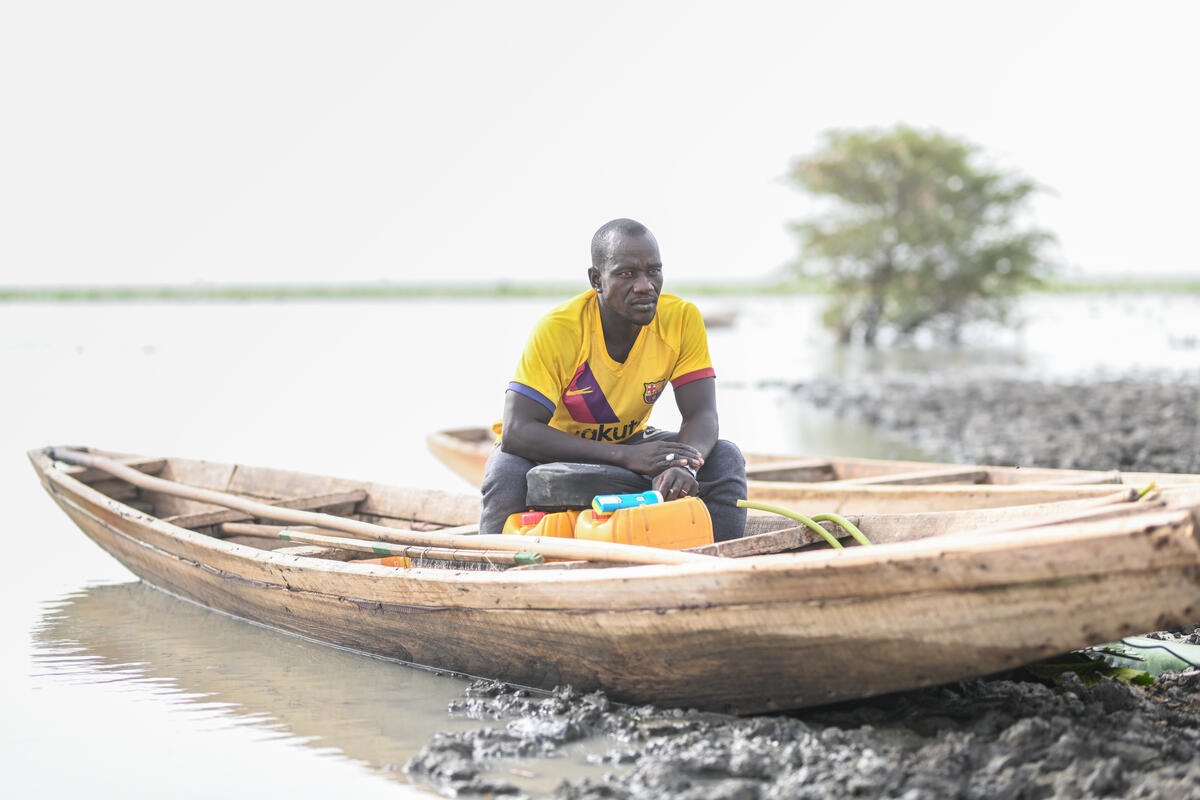Eastern Chad: UNHCR and refugees fight to hold back the desert
Eastern Chad: UNHCR and refugees fight to hold back the desert

ABECHE, Chad , August 21 (UNHCR) - Stopping the Sahara desert from steadily taking over eastern Chad's still semi-arid Sahel zone is a major environmental challenge, what some would call a David and Goliath battle.
Chad, one of the driest and hottest countries on earth, celebrated the Day of the Tree on Thursday, the culmination of the Week of the Tree, when its 9.4 million people were encouraged to plant at least one tree each.
During the week, Chadian President Idriss Deby invited UNHCR Representative Stefano Severe and other heads of UN agencies to plant trees together with government officials in the outskirts of the capital, N'Djamena. A similar ceremony was held in eastern Chad's capital, Abeche.
"It was very touching," said UNHCR Deputy Representative Emmanuel Gignac in Abeche. "We all kneeled on the ground together and planted our trees, and afterwards some Chadians approached me and expressed their sincere thanks."
The 320,000 refugees sheltering in Chad were also invited to plant trees, and UNHCR supported the regional reforestation program in Africa's Sahel zone by planting 400,000 trees in eastern Chad this year.
Nature is not a supermarket providing endless supplies. It is rather the responsibility of each and everyone to safeguard the environment for generations to come.
Campaign run by UNHCR's office in Gore, southern Chad
Preparations started back in March when groups of Sudanese refugees in 12 UNHCR-run camps in the east began working in tree nurseries, filling tens of thousands of tiny plastic sachets with sand and earth.
They then planted a baby tree in each sachet, placed them in the shade to protect them from the average 45-50 degrees Celsius heat and watered them carefully for months. Rain is a scarce commodity in eastern Chad, but by August, in the middle of the three-month rainy season, the soil is ready to nurture a plant.
"This year, together with our implementing partners, we will plant 250,000 forest species and 150,000 fruit trees," said Andrea Masini, UNHCR's environmental officer in Abeche. "Together with local authorities we have identified a total of 200 hectares -- equal to the size of 100 football fields -- outside refugee camps, sites for internally displace people (IDPs) and villages for our reforestation program."
Fruit species like lemon, papaya, and mango trees are distributed free to refugees, IDPs and locals to be planted near their homes. Experience in the two-year-old reforestation program showed that trees planted at people's homes have the best chances of survival. Many planted in fields died from lack of water - or were eaten by donkeys and cows.
The forest species like acacia and drought-resistant spiny prosopis are planted in reserved areas and will be protected by fences and cared for over a year to improve their chances of survival. Then it will take them three or four years to grow big enough to offer some shade, while fruit species reward their owners with a crop after just two or three years.
While the 250,000 Darfur refugees in eastern Chad suffer extreme climate conditions in the harsh desert, the nearly 70,000 Central African Republic refugees in southern Chad are more blessed by nature. And UNHCR used the Day of the Tree to teach them ways of respecting that environment.
Besides planting seedlings, refugees in the south were encouraged not to cut trees indiscriminately, but to leave one standing every 12 to 15 footsteps when they do need to clear land.
"Nature is not a supermarket providing endless supplies. It is rather the responsibility of each and everyone to safeguard the environment for generations to come," said the campaign run by UNHCR's office in Gore, southern Chad.
By Annette Rehrl
In Abeche, Chad

